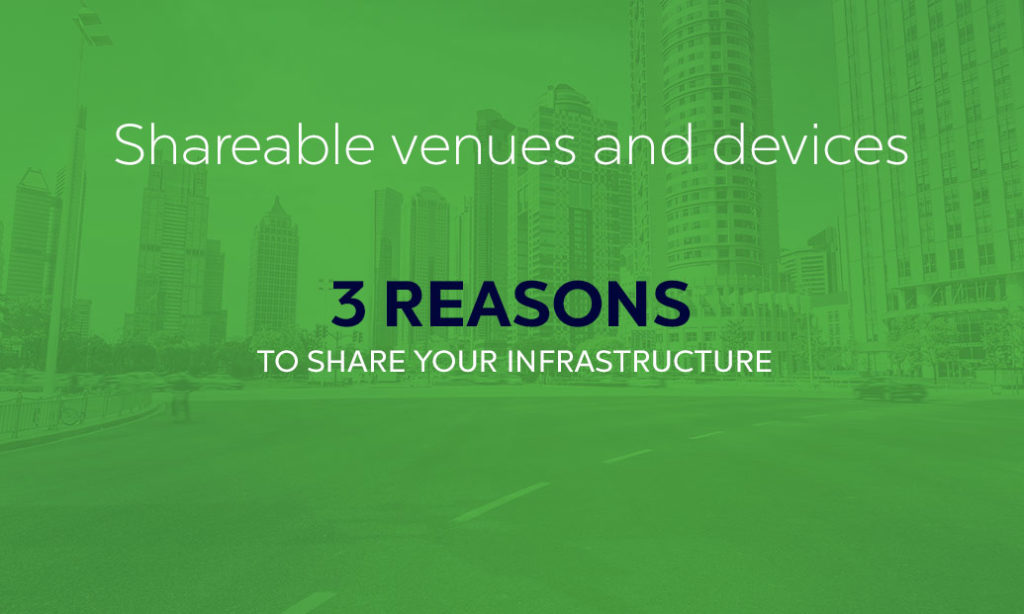
We’ve just recently announced that we have the capacity to share venues and make them public through our API. If you’re not a developer, though, you may have missed out on what it meant: we have created a system where you can grant limited access to the beacons that you own or administer to someone else. There are three different ways you can do this: shared, shared with restrictions, and public. Not to get into too many details, here’s how it works:
Unless you’re a developer, this probably didn’t excite you much—but it should! Shareable and public venues and devices transform what you can do with your beacons, and can make beacons a hugely more profitable investment. With shareable and public venues a development in the space, no one has made a large-scale rollout yet, but here are three use cases that clients of ours are already piloting:
Table of contents:
Some of our clients are already working on networks of outdoor advertising placements that spans the globe. They’re testing using beacons especially in areas where the outdoor is likely to have foot traffic passing by to supplement the ad that is being displayed. That’s not especially new. What is new that they are going to be providing their beacon infrastructure directly to their clients: for the duration of the advertising run, the client will have access to the beacons as well to do what they choose to. When the outdoor ads change, the API key will be revoked and the advertiser will no longer have access to the beacon network, making the whole management process for monetizing beacon infrastructure as simple as can be with the Kontakt.io Proximity API.
In our own hometown of Krakow we are currently piloting a project with Hub:raum, HG Intelligence, and T-Mobile to beaconize the whole city through a project called “Beacon Valley”. The beacons will be used by the city itself and they will also be shared publicly with anyone who registers to develop a beaconized app in Krakow. Making microlocation available for any developer or business in the city to use will foster innovation and growth—a fantastic use of city funds to develop a new startup sector. Beyond that, we will also soon be launching a program where any business that wishes to buy beacons and use them for public good can get them a discount from Kontakt.io just for helping create a network that can be of use to anyone in the world who has a need.
Ebizu is beaconizing the entirety of Malaysian malls for a variety of purposes, including indoor navigation with the Ebizu app. As a subscription service for the stores in the mall, they can make use of the beacons in the store for value-add features analytics, push messaging, and even advertise to people as they pass from the parking lot to a specific entrance of the mall. Of course, when a business leaves the mall, they don’t want to continue to offer the national headquarters access to the data or the ability to continue to advertise in their mall, so they can gracefully turn off that store’s shared access in our API.
As you can see, the ability to share—either with a limited audience or publicly with anyone—opens up a realm of possibilities for businesses and developers alike. Want to know more? If you’re a developer, you may want to read our extensive documentation here. Otherwise, get in touch with us. We hope that you now know the reasons why to share venues.

How smart hospital solutions are delivering better clinical outcomes, greater efficiencies, and higher patient satisfaction through digital transformation using technologies like Internet of Things (IoT) and Artificial Intelligence (AI)
Turn your workspace into a modern one with Kontakt.io spatial intelligence solutions.
Learn how we can help improve employee experience, decrease carbon footprint, and
help you understand how your space is utilized in a SIMPLE & AFFORDABLE way.